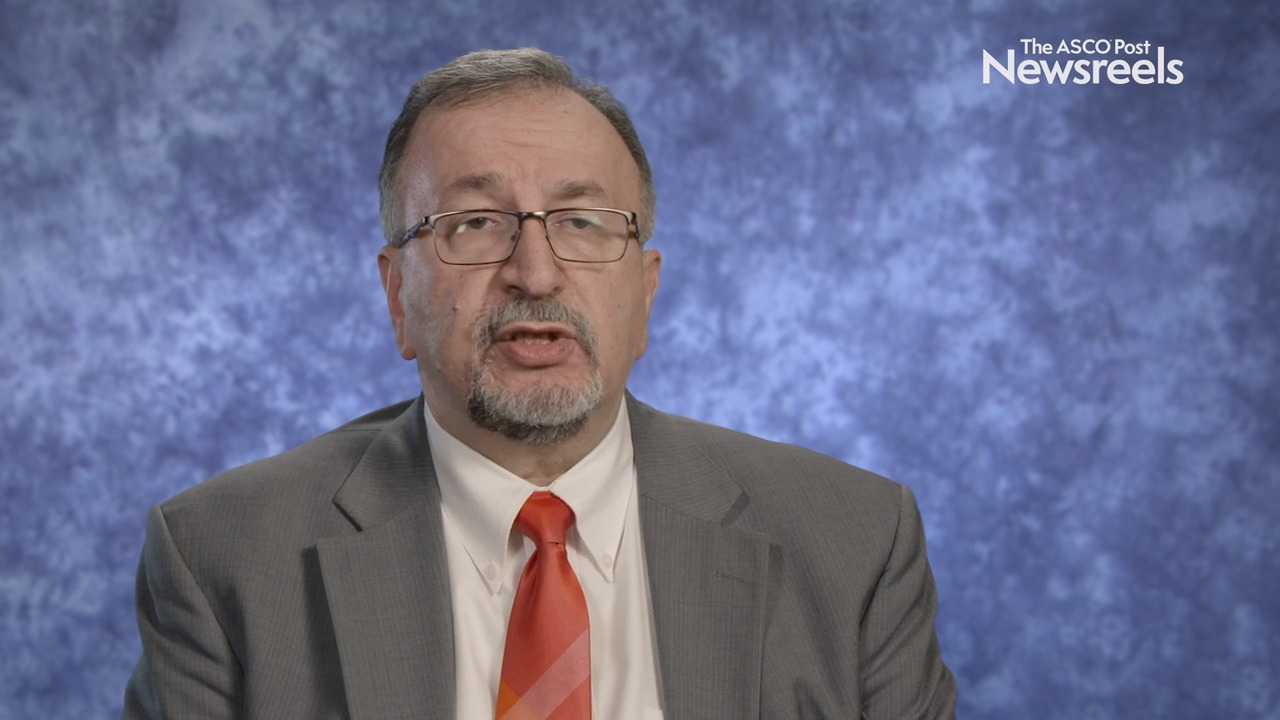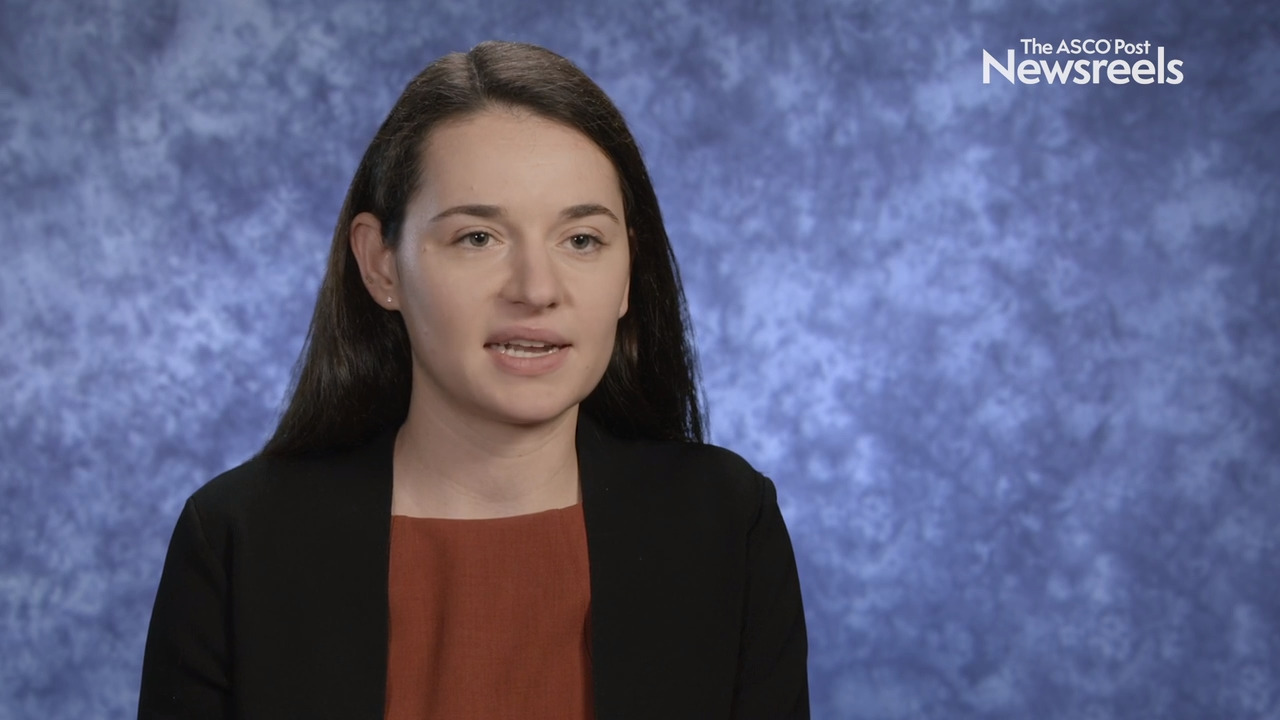Zev A. Wainberg, MD, on PD-L1–Positive Advanced Gastric Cancer: MSI and Combined Positive Score and Pembrolizumab vs Chemotherapy
2020 Gastrointestinal Cancers Symposium
Zev A. Wainberg, MD, of the UCLA Medical Center, discusses the first subset analysis of how a combined positive score in gastric and gastroesophageal junction cancers related to the efficacy of pembrolizumab in PD-L1–positive disease (Abstract 427).
Peter R. Galle, MD, of the University Medical Center, Mainz, discusses patient-reported outcomes from this phase III study, which showed the combination of atezolizumab plus bevacizumab vs sorafenib is well tolerated and may represent a new standard of care in the first-line setting for unresectable liver cancer (Abstract 476).
Eyal Meiri, MD, of the Cancer Treatment Centers of America at Southeastern Regional Medical Center, discusses his findings on heavily pretreated patients with colorectal cancer with high tumor mutational burden. Monotherapy with pembrolizumab showed antitumor activity, which merits further study to confirm efficacy (Abstract 133).
Thomas Yau, MBBS, of the University of Hong Kong, discusses this triplet combination, which yielded better responses than doublet combination therapy in patients with advanced liver cancer, but with more severe adverse events and more treatment discontinuations (Abstract 478).
Brian M. Wolpin, MD, of Dana-Farber Cancer Institute, discusses a noninvasive blood test evaluating methylation of circulating free DNA. In his study, the blood test detected multiple gastrointestinal cancers at a sensitivity of approximately 81% and a prespecified specificity of > 99%. It also accurately localized the tissue of origin across more than 20 cancer types (Abstract 283).
Danielle S. Bitterman, MD, of the Harvard University Radiation Oncology Program and Massachusetts General Hospital, discusses an analysis of genomic and clinical data from 97 patients with pancreatic ductal adenocarcinoma with circulating tumor DNA. Mutations were most frequently detected in patients with locally advanced and metastatic disease (Abstract 753).





